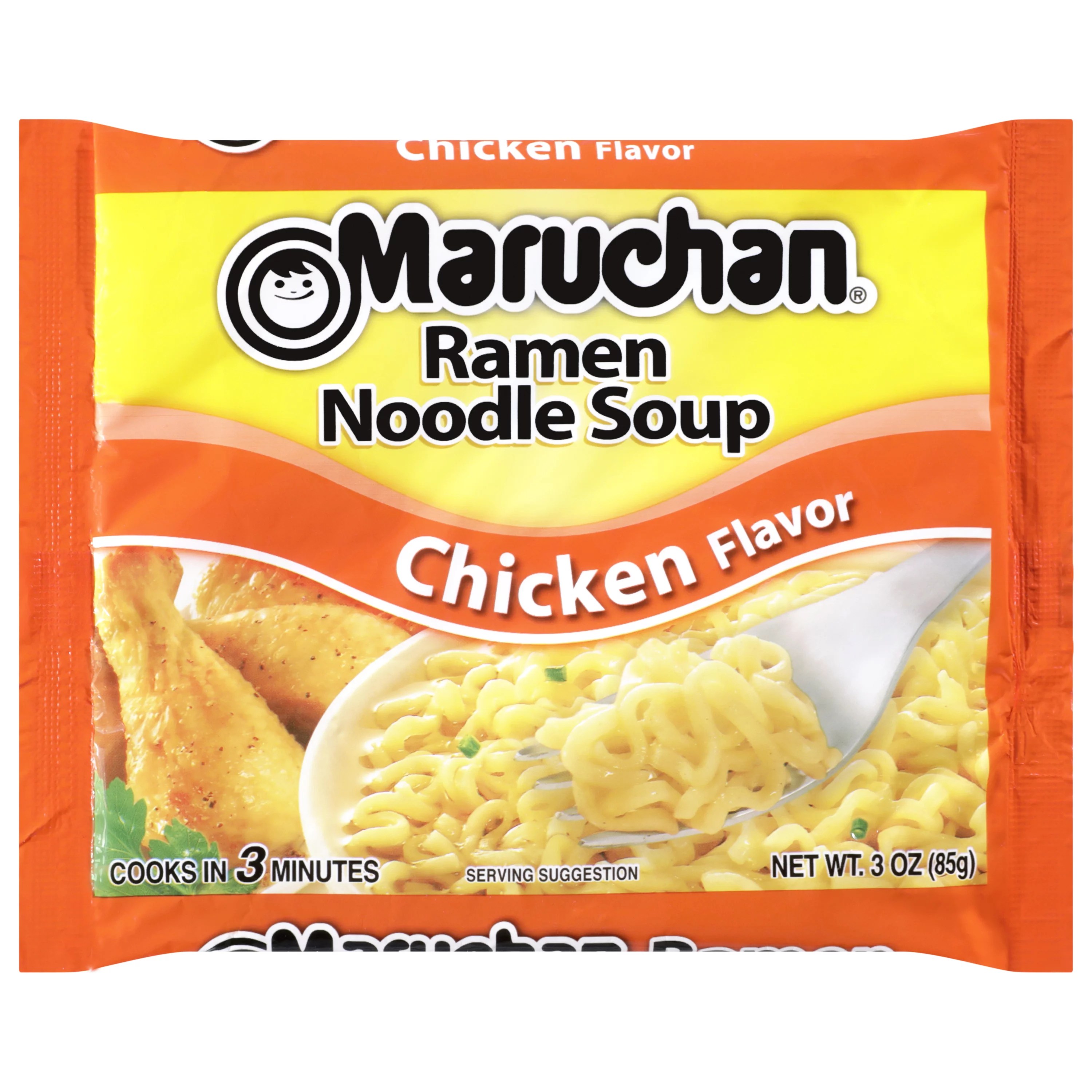Maruchan ramen has become a staple in many households, particularly among college students and busy professionals looking for a quick meal. While its convenience and affordability are undeniable, the health implications of consuming this instant noodle brand often come into question. In this article, we will delve into the nutritional aspects of Maruchan ramen, its ingredients, and how it fits into a balanced diet. We aim to provide you with the information you need to make an informed decision about whether or not Maruchan ramen is a healthy option for you.
Instant noodles have gained immense popularity over the years, with Maruchan leading the market due to its variety of flavors and ease of preparation. However, as with many processed food products, there are concerns about their nutritional value, sodium levels, and overall impact on health. This article will explore these concerns while providing practical insights into how to enjoy Maruchan ramen healthily.
By the end of this article, you will have a clearer understanding of Maruchan ramen's nutritional profile and whether or not it can be a part of a healthy diet. Let's dive in and explore the facts behind this beloved instant noodle brand.
Table of Contents
- Nutritional Profile of Maruchan Ramen
- Ingredients Analysis
- Sodium Content and Its Implications
- Caloric Density and Portion Control
- How to Incorporate Maruchan Ramen into Balanced Meals
- Health Concerns Related to Instant Noodles
- Healthier Alternatives to Maruchan Ramen
- Conclusion
Nutritional Profile of Maruchan Ramen
Maruchan ramen typically contains the following nutrients per serving (approximately 2.25 oz or 64g):
- Calories: 380
- Total Fat: 14g
- Saturated Fat: 7g
- Cholesterol: 0mg
- Sodium: 1,580mg
- Total Carbohydrates: 54g
- Dietary Fiber: 2g
- Total Sugars: 1g
- Protein: 8g
While Maruchan ramen provides a quick source of calories and carbohydrates, the nutritional content raises some concerns. The high levels of sodium and saturated fat are particularly noteworthy.
Ingredients Analysis
The ingredients in Maruchan ramen include:
- Enriched wheat flour
- Vegetable oil
- Salt
- Sodium carbonate
- Potassium carbonate
- Flavoring agents
Understanding these ingredients can help us assess the overall healthfulness of Maruchan ramen. The presence of enriched wheat flour means the noodles provide some essential nutrients but often lack fiber and whole grains. Additionally, the vegetable oil contributes to the saturated fat content.
Sodium Content and Its Implications
One of the most significant health concerns regarding Maruchan ramen is its sodium content. With 1,580mg of sodium per serving, this instant noodle exceeds the recommended daily limit for sodium intake, which is 2,300mg for most adults. High sodium consumption is linked to various health issues, including:
- Hypertension (high blood pressure)
- Increased risk of heart disease
- Kidney issues
Limiting consumption of high-sodium foods is crucial for maintaining a balanced diet and promoting long-term health.
Caloric Density and Portion Control
Maruchan ramen is relatively high in calories for a small serving size. At 380 calories per serving, it can contribute significantly to your daily caloric intake without providing a substantial amount of nutrients. To manage caloric density and maintain a healthy weight, consider:
- Limiting portion sizes
- Adding vegetables or protein sources to increase nutrient density
- Avoiding high-calorie toppings like fatty meats
By being mindful of portion control, you can enjoy Maruchan ramen while keeping your caloric intake in check.
How to Incorporate Maruchan Ramen into Balanced Meals
Despite its nutritional drawbacks, Maruchan ramen can still be part of a balanced meal when prepared thoughtfully. Here are some tips for making your ramen healthier:
Add Vegetables
Incorporating fresh or frozen vegetables such as spinach, broccoli, or bell peppers can boost the nutrient content of your ramen. Vegetables provide essential vitamins, minerals, and fiber.
Include Lean Proteins
Adding a source of lean protein, such as grilled chicken, tofu, or boiled eggs, can help create a more balanced meal that keeps you feeling full longer.
Use Less Seasoning Packet
Consider using only a portion of the seasoning packet to reduce sodium intake. You can enhance flavor with herbs and spices instead.
Health Concerns Related to Instant Noodles
Regular consumption of instant noodles like Maruchan ramen has been linked to several health concerns, including:
- Increased risk of metabolic syndrome
- Potential for weight gain
- Impaired nutrient absorption
It’s important to be aware of these risks and to consume instant noodles in moderation, balancing them with whole, unprocessed foods.
Healthier Alternatives to Maruchan Ramen
If you're looking for healthier alternatives to Maruchan ramen, consider the following options:
- Whole grain or brown rice noodles
- Shirataki noodles (low-calorie, low-carb option)
- Homemade noodle soups with fresh ingredients
These alternatives can provide similar convenience while offering better nutritional profiles.
Conclusion
In conclusion, Maruchan ramen can be enjoyed occasionally but should not be a dietary staple due to its high sodium, caloric density, and lack of essential nutrients. By making mindful choices and incorporating healthier ingredients, you can enjoy this popular instant noodle while maintaining a balanced diet. Remember to consult with a healthcare professional for personalized dietary advice.
We would love to hear your thoughts! Have you tried making Maruchan ramen healthier? Share your tips in the comments below, and don’t forget to explore our other articles for more health-related insights!
Thank you for reading, and we hope to see you back here for more informative content!




